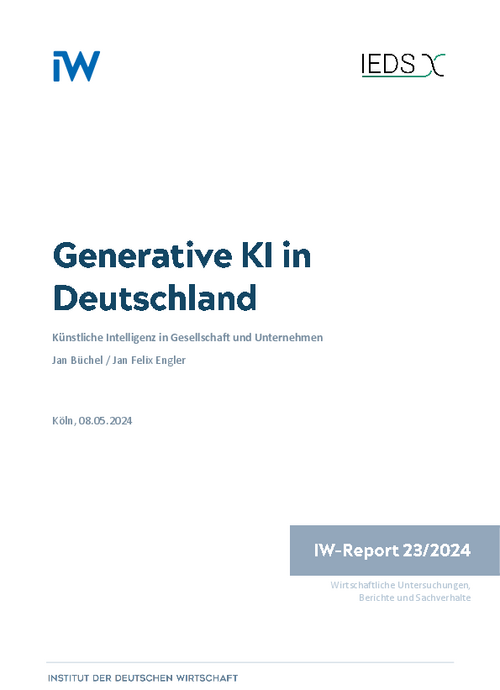The Big Data Analytics Research Unit looks at the opportunities offered by analyses of Big Data . Read more about the focus of this research group.
- Home
- Institute
- Main research topics
- Big Data Analytics
Big Data Analytics
Digital sensors, the Internet of Things and social platforms are among the phenomena which nowadays generate a constant stream of new data. As the volume of this data increases at an ever-faster pace, more and more use is being made of Big Data analyses, which allow an unprecedented potential to be exploited in many areas of the economy. However, the generation and meaningful use of this wealth of information requires special technologies, approaches and systems. Our Big Data Analytics team tackles various aspects of Big Data with a focus on economic issues.
Special Focus
- We specialise in the processing of structured and unstructured data generated by new methods and technologies. These include internet search queries, content from websites (job advertisements, invitations to tender, newspapers, prices) and information from social media.
- Application to economic issues of Big Data methods such as machine learning with deep learning, data mining, natural language processing, time series analysis, etc.
- Application of Big Data to business cycle research
- Augmenting official statistics, for example for the labour market
- Data economics including context-dependent economic analysis of law
- Examples of current research
- The Big Data Cooperation Cluster uses a wide range of analytical methods and approaches. In principle, Big Data methods can be applied to all pertinent economic issues. A typical example is the use of text analysis to analyse networks as in the case given here referring to the German players in Covid 19 research.
Contact Persons

Clemens Fabian Gruben
Data Engineer
Tel: +49 221 4981-784 Mail: gruben@iwkoeln.de Clemens Fabian Gruben
Dr. Armin Mertens
Head of Big Data Analytics Research Unit
Tel: +49 221 4981-747 Mail: armin.mertens@iwkoeln.de Armin MertensAll news

Generative AI in Germany: Artificial intelligence in society and companies
Generative AI has recently caused quite a stir. The reason is that generative AI applications can independently generate content such as texts, images, programming codes or videos that are often difficult to distinguish from human-generated content.
Jan Büchel / Jan Felix Engler IW
Open Science as a Means for Development Aid: Fostering Scientific Research and Innovation
Access to prior scientific works and technical information is key to the emergence of new scientific knowledge and innovation (Moser and Biasi 2018, Nagler et al. 2019).
*Alexander Cuntz / *Frank Mueller-Langer / *Alessio Muscarnera / *Prince C. Oguguo / Marc Scheufen IW
Access to science and innovation in the developing world
We examine the implications of lowering barriers to online access to scientific publications for science and innovation in developing countries.
*Alexander Cuntz / *Frank Mueller-Langer / *Alessio Muscarnera / *Prince C. Oguguo / Marc Scheufen IW
Theories of Harm Because of Data
While digital platforms become more and more important for the whole society as well as the economy, regulatory reactions are also discussed and implemented.
Christian Rusche in CPI Antitrust Chronicle IW
Digitalisation Index 2023: Digitalisation of the economy in Germany
The digitalisation of the economy in Germany continues to stagnate in 2023: the digitalisation index score is 108.6 points in 2023 compared to 110.5 points in 2022. After the sharp rise in 2021, the development of digitalisation since then can be described as more of a lateral or sideways movement.
Jan Büchel / Dennis Bakalis / Marc Scheufen IW
Your search returned an incorrect status. You may have selected too many filters. You can jump back to your previous selection to adjust your search.
With our new newsletters on the following topics you no longer have an IW publication.
We send out our topic-specific newsletters every month.
Register here
With our new newsletters on the following topics you no longer have an IW publication.
![[Translate to Englisch:] iStock](/fileadmin/_processed_/d/2/csm_Big-Data-Analytics-FroYo_92-iStock-688140822_aec1275474.jpg)


